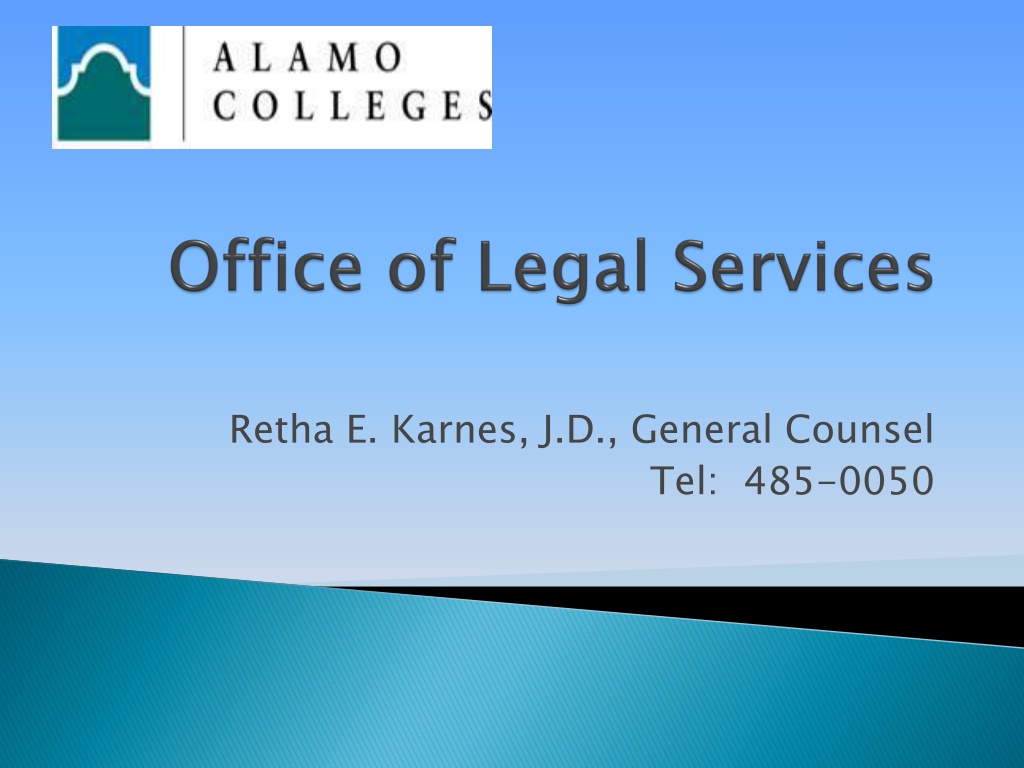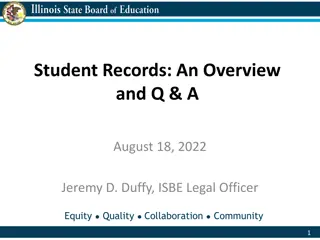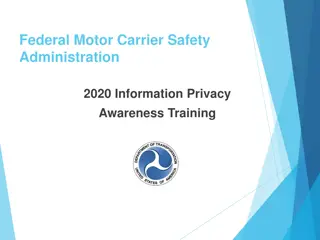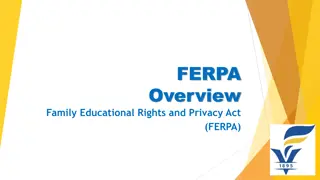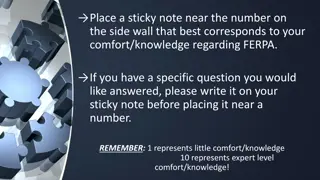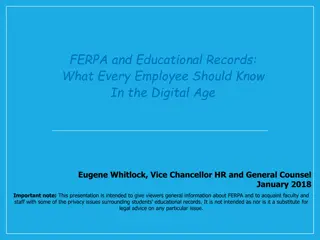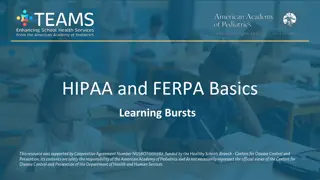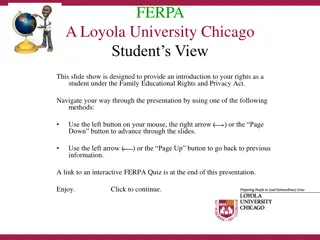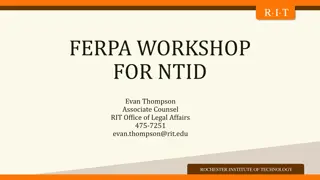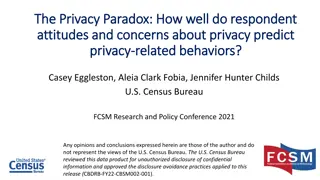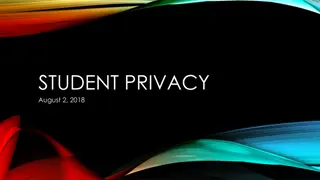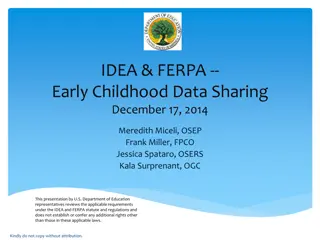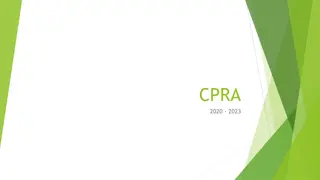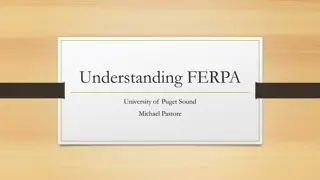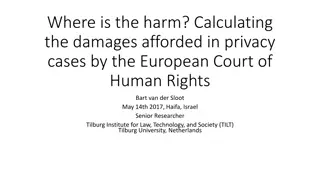Understanding FERPA: Family Educational Rights and Privacy Act Overview
FERPA, also known as the Buckley Amendment, is a federal law regulating access to education records in schools receiving U.S. Department of Education funds. It applies to all students regardless of age or physical presence, governing disclosure of specific student information under certain conditions.
Download Presentation

Please find below an Image/Link to download the presentation.
The content on the website is provided AS IS for your information and personal use only. It may not be sold, licensed, or shared on other websites without obtaining consent from the author. Download presentation by click this link. If you encounter any issues during the download, it is possible that the publisher has removed the file from their server.
E N D
Presentation Transcript
Retha E. Karnes, J.D., General Counsel Tel: 485-0050
20 U.S.C. 20 U.S.C. 1232g; 34 CFR Part 99 1232g; 34 CFR Part 99
FERPA, Family Educational Rights and Privacy Act of 1974, also known as the Buckley Amendment, is a federal law that governs the release of and access to education records. FERPA applies to all schools that receive funds under an applicable program of the U.S. Department of Education. If you would like more information, go to http://www.ed.gov/policy/gen/guid/fpco/fer pa/index.html
- any student - present or former - in attendance at Alamo Colleges The student s age is not a consideration. Physical presence in class is not required.
- all records - directly related to a student and maintained by an educational agency or institution or by a party acting for the agency or institution
- Information that would not generally be considered harmful or an invasion of privacy if disclosed.
Students Name Dates of Attendance (by semester, not specific days of the week) Major Classification Enrollment status (full-time or part-time) Previous institution(s) attended Degree(s) awarded Academic honors/awards.
Information derived from a students education records may be disclosed only if: (1) It is directory information ; (2) The student has consented to the disclosure; or (3) The law provides an exception that permits disclosure without the student s consent.
A reasonable basis must be present for a rational person to conclude that a threat to health or safety is present. Make a record of (1) the articulable and significant threat that formed the basis for the disclosure and (2) the appropriate parties to whom the information was disclosed. Appropriate parties include, but are not limited to, parents of the student, law enforcement, potential victims and their families, friends, and the Alamo Colleges SOBI Team and other school officials trained to evaluate and handle such emergencies. (Consult OLS before disclosing information under this option.)
The College may notify parents about a 19- year old student s underage drinking violation even if the student is not their tax dependent. The College may notify parents of a 22-year old student s drug violations if the student is their tax dependent. A situation need not be deemed a health or safety threat for option 1 or 2 to apply.
If it is permissible to disclose under FERPA, then MUST disclose under PIA. Contact Legal Services if you get a PIA request relating to education records.
Instructors and other school officials may discuss or access a student s education records based upon a legitimate educational interest. Instructors and other school officials may discuss or access a student s education records based upon a legitimate educational interest. A school official has a legitimate educational interest if the official needs to review an education record in order to fulfill his or her professional responsibilities for the Alamo Colleges.
Specific information must be disclosed to military recruiters, including name, address, and telephone number. Direct all requests from the military to the Office of Legal Services.
The Campus Sex Crimes Prevention Act requires colleges and universities to provide the campus community with clear guidance as to where this information can be found, and clarifies that FERPA does not prevent campus security agencies or other administrators from disclosing such information. (See 20 U.S.C. 1232g(b)(7); C.F.R. 99.31). Contact Alamo Colleges Police Dept. to obtain information on registered sex offenders.
The College must use reasonable methods to identify and authenticate the identity of parents, students, school officials, and any other parties to whom they disclose education records. OLS recommends obtaining a copy of a picture ID or a properly notarized statement from the requestor. Form is available on OLS webpage at http://www.alamo.edu/district/legal/contracts.ht m
The College must maintain a record of each request for access and each disclosure. These records must be kept with the education records of the student as long as the education records are maintained by the College.
Physical controls such as locks on cabinets Technological controls such as software programs with passwords
Policy F.4.1 Student Records http://www.alamo.edu/district/ethics/searchfil es/F.4.1%20Policy.pdf Procedure F.4.1.1 Access to Student Records http://www.alamo.edu/district/ethics/searchfil es/F.4.1.1%20Procedure.pdf Procedure F.4.1.2 Amendments to Student Records http://www.alamo.edu/district/ethics/searchfil es/F.4.1.2%20Procedure.pdf
OLS webpage: http://www.alamo.edu/district/legal/
